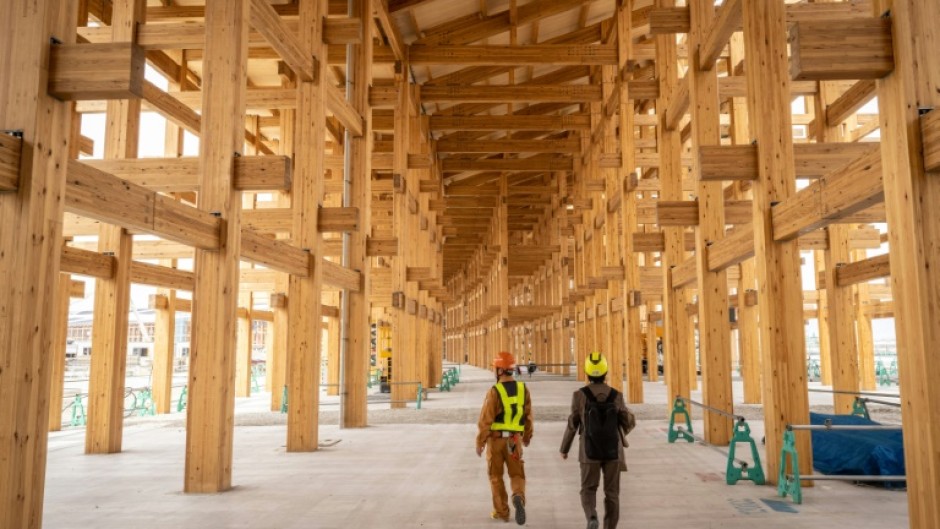TOKYO - One of the largest wooden structures ever built is taking shape in Osaka, but hopes that Expo 2025 will unite the world are being dogged by cost blowouts and a lack of public enthusiasm.
Organisers said construction was largely on schedule, one year before visitors will be welcomed.
Expo 2025 global PR director Sachiko Yoshimura maintained that global participants would be "united" by the event even though there are conflicts in Ukraine, Gaza and elsewhere.
It has also met a lukewarm response in Japan, where promotion is ramping up and the red-and-blue Expo 2025 mascot "Myaku-Myaku" -- billed by the official website as "a mysterious creature born from the unification of cells and water" -- is ever-present.
A recent Kyodo News survey found that 82 percent of Japanese companies, sponsors and others involved said "fostering domestic momentum" would be a challenge.
The construction budget has ballooned 27 percent from 2020 estimates to 235 billion yen ($1.5 billion) due to inflation and Japan's chronic worker shortage.
Some say the costs are also hard to justify when 6,300 people are still in evacuation centres and hotels after an earthquake on New Year's Day devastated parts of central Japan.
Fujimoto's "Grand Roof" alone has a price tag of 35 billion yen and has been slammed by opposition leader Kenta Izumi as "the world's most expensive parasol".
The "Grand Roof" and other structures are temporary, with no clear plan for them other than organisers saying they will be reused or recycled.
The site on an artificial island in Osaka Bay will be cleared after the Expo, with plans to build a resort there containing Japan's first casino.
Jun Takashina, deputy secretary general of the Japan Association for Osaka 2025, acknowledged budget and regulatory "struggles" among foreign participants but said organisers would help make sure the displays are ready in time.
Among the most hotly anticipated attractions are flying electric cars, which take off vertically, showcasing the event's technological and environmental aspirations.
But the vehicles -- subject to reams of regulations -- will be a "kind of experiment", Yoshimura said.
More than 1.2 million tickets have already been sold and organisers hope to attract 28.2 million visitors, including 3.5 million from abroad.
That would be four million more than the last World Fair in Dubai but pales in comparison to the 64 million people who attended the 1970 Expo in Osaka, a record until it was overtaken by Shanghai in 2010.

